Related Research Articles

Giuseppa Marcella Bella, known as just Marcella Bella or simply Marcella, is an Italian pop singer with a career spanning six decades. Her repertoire includes several songs composed by her brother Gianni.

Giuseppe Vittorio Raimondo "Pippo" Baudo is one of the most famous Italian television presenters, with a career spanning six decades. He is often nicknamed "Superpippo". Baudo has also been the artistic director and president of the Teatro Stabile di Catania.

Pitura Freska was a reggae music group based in Venice, Italy, consisting of Marco Forieri, Sir Oliver Skardy, Francesco Duse (guitar), Cristiano Verardo (guitar), Valerio Silvestri (trumpet), Toni Costantini (trombone) and Francesco "Ciuke" Casucci (bass). The name of the group is Venetian dialect for "wet paint".

Riccardo Fogli is an Italian singer-songwriter.

The Sanremo Music Festival 2010, officially the 60th Italian Song Festival, was the 60th annual Sanremo Music Festival, held at the Teatro Ariston in Sanremo, province of Imperia, during the five nights between 16 February 2010 and 20 February 2010. The show was broadcast by Rai 1 and presented by Antonella Clerici. Its artistic director was Gianmarco Mazzi.
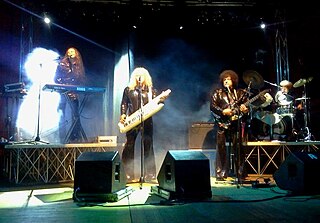
I Cugini di Campagna is an Italian pop band formed in 1970 in Rome. They are well known for the use of falsetto and for their eccentric look, a cross between glam and kitsch.

Gruppo Italiano were an Italian Italo disco band formed in 1980. They are best known for the song "Tropicana" that ranked sixth on the Italian hit parade in 1983.
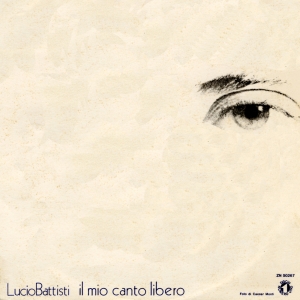
"Il mio canto libero" is a song written by Italian singer-songwriter Lucio Battisti and lyricist Mogol. The song was recorded by Battisti for the album of the same title, and released as a single in November 1972 for Mogol's recording label Numero Uno. The song was a commercial success in Italy, topping the Musica e dischi singles chart for nine consecutive weeks in 1973 and becoming the third best-selling single of the year. During the following years, it was covered by several artists, and it became a classic of Italian popular music. It was certified platinum by the Federation of the Italian Music Industry in 2021, for domestic equivalent sales exceeding 70,000 units since 2009.
Marco Ferradini is an Italian pop-rock singer-songwriter and musician.

Enrico Beruschi is an Italian comedian, actor, singer and television personality. He studied at the Italian Liceo classico in Milan, having Cochi Ponzoni as his deskmate.
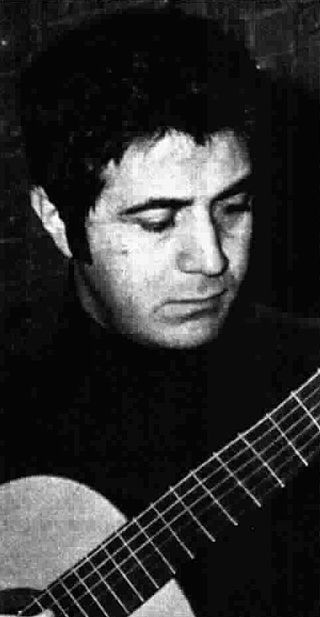
Fausto Cigliano was an Italian singer, guitarist, and actor.
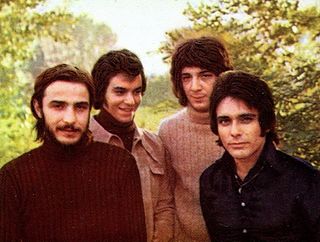
I Profeti were an Italian pop group, mainly successful in the late sixties and in the seventies.
The Sanremo Music Festival 1996, officially the 46th Italian Song Festival, was the 46th annual Sanremo Music Festival, held at the Teatro Ariston in Sanremo, province of Imperia, in late February 1996 and broadcast by Rai 1.
The Sanremo Music Festival 1993, officially the 43rd Italian Song Festival, was the 43rd annual Sanremo Music Festival, held at the Teatro Ariston in Sanremo, province of Imperia between 23 and 27 February 1993 and broadcast by Rai 1.
The Sanremo Music Festival 1987, officially the 37th Italian Song Festival, was the 37th annual Sanremo Music Festival, held at the Teatro Ariston in Sanremo, province of Imperia, between 4 and 7 February 1987 and broadcast by Rai 1.
The Sanremo Music Festival 1985, officially the 35th Italian Song Festival, was the 35th annual Sanremo Music Festival, held at the Teatro Ariston in Sanremo, Italy, between 7 and 9 February 1985 and broadcast on Rai 1.
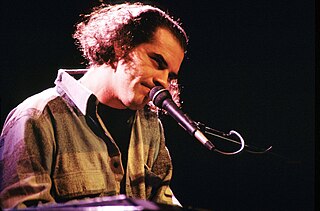
Francesco Baccini is an Italian singer-songwriter.
The Sanremo Music Festival 2002, officially the 52nd Italian Song Festival, was the 52nd annual Sanremo Music Festival, held at the Teatro Ariston in Sanremo, province of Imperia, between 5 and 9 March 2002 and broadcast by Rai 1.
The Sanremo Music Festival 2003, officially the 53rd Italian Song Festival, was the 53rd annual Sanremo Music Festival, held at the Teatro Ariston in Sanremo, province of Imperia, between 5 and 9 March 2003 and broadcast by Rai 1.
Mario Panzeri was an Italian lyricist and composer. He is well known for his composed songs that include "Maramao perché sei morto?" "Pippo non lo sa", "Lettera a Pinocchio", and "Grazie dei fiori", which won the first edition of the Sanremo Music Festival in 1951.
References
- 1 2 3 4 5 Susanna, Giancarlo (1990). "Timoria". In Castaldo, Gino (ed.). Dizionario della canzone italiana (in Italian). Vol. 2. Rome: Curcio. ICCU IT\ICCU\IEI\0628171.
- 1 2 3 4 5 6 Deregibus, Enrico (8 October 2010). Dizionario completo della canzone italiana (in Italian). Florence: Giunti. ISBN 978-88-09-75625-0.
- 1 2 3 4 5 Anselmi, Eddy (2009). Festival di Sanremo: almanacco illustrato della canzone italiana (in Italian). Modena: Panini. ISBN 978-88-6346-229-6.
- ↑ "Le poesie dell'ex Timoria Ghedi sbarcano negli Usa con Hirschman". BsNews.it (in Italian). 4 June 2017.